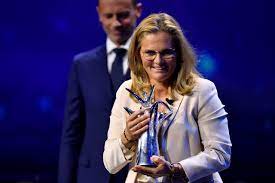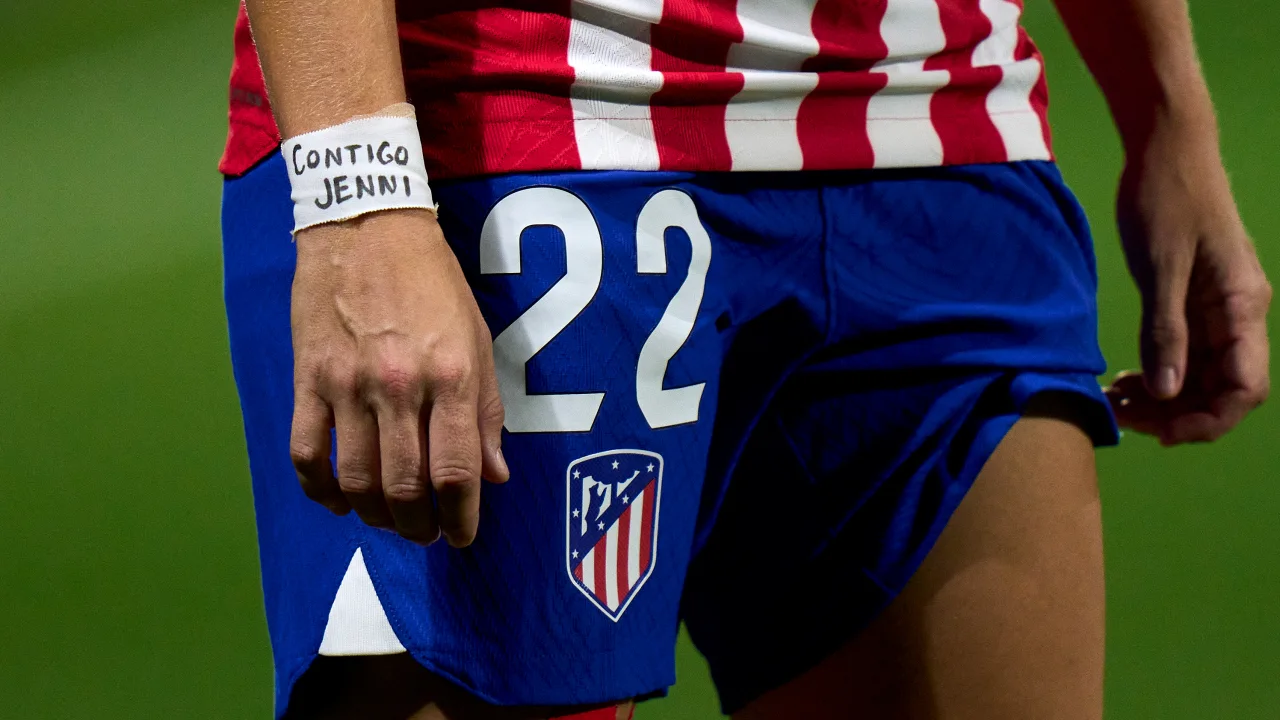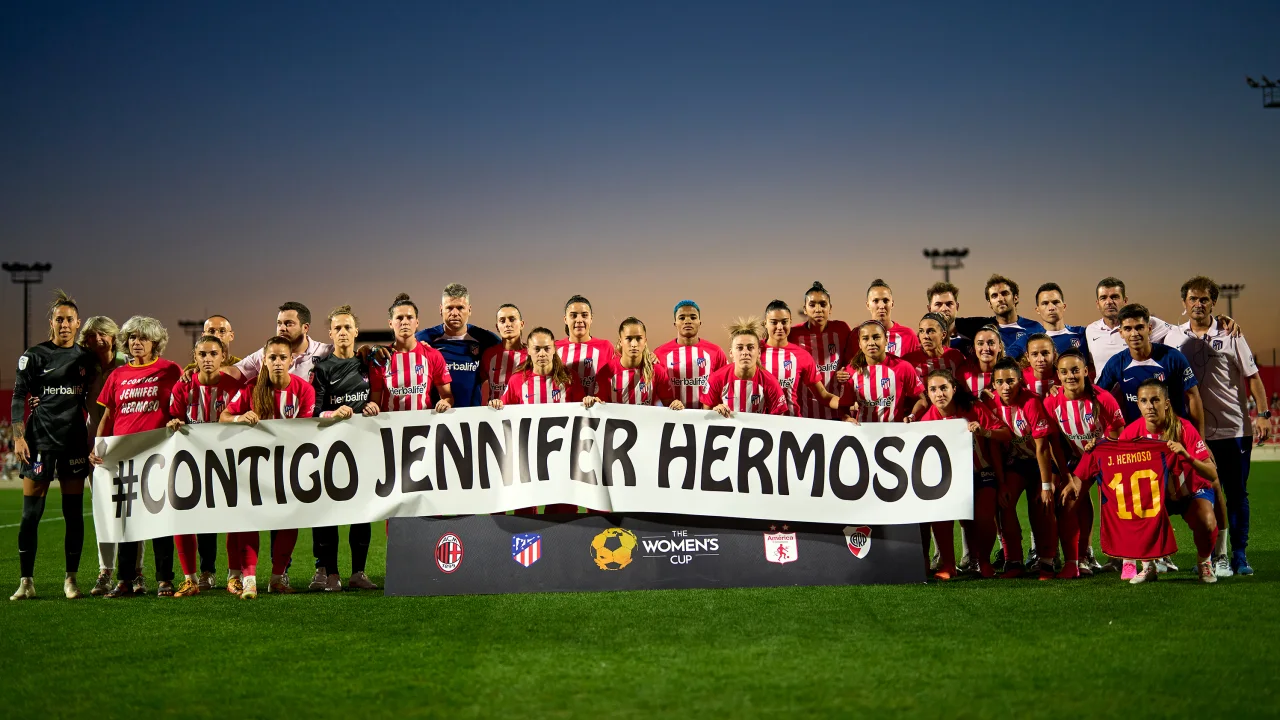Success, Setbacks and Shakeups
- Bethany Barker
- Sep 21, 2023
- 8 min read
One month on from the Women's World Cup final there have been many developments in the game but these have also been paired with eye-opening setbacks
Thursday 21st September 2023
One month ago we saw the conclusion of a record-breaking tournament in women's football which saw a total of 1,978,274 fans pack out stadiums in the southern hemisphere to cheer their teams on. The final- attended by 75,784 fans- saw Spain become history makers with their first Women's World Cup win and became one of just two countries to win both a Men's and Women's World Cup; however just minutes after their historical win controversy would soon follow La Roja and start up important conversations surrounding the treatment of players.

New World Number Ones:
Following the WC final, FIFA released their new team rankings where the teams are ranked, "according to a value that is a measure of their actual strength". The new ranking leaves Sweden at the top with 2069.17 points compared to World Champions- Spain- 2051.84 points. Following closely behind Spain is past World Champions USA with 2051.21, which sees them fall from the top space for the first time in nearly seven years, although this is the longest a team has ever spent at the top of the WWR. European Champions, England, keep their number four ranking with 2030.14 points.

However, teams could see more changes later this year (December) when the ranking is re-released after international breaks such as the Nations League and the Asia Cup.
Revolving Door of Coaches:
Since the Summer's tournament, many teams have said goodbye to their head coaches, either due to contracts expiring or the federations deciding the progress was not good enough.
USA head coach: Vlatko Andonovski resigned after the reigning World Champions struggled to make it out of the round of 16 against Sweden (5-4 on penalties).
Ireland's head coach Vera Pauw was not offered a new contract after speculation that she disagreed with the FIA about the women's team's future. She got Ireland to their first WC but the team struggled to get out of the group stages. Eileen Gleeson will be the side's interim coach for the Nations League.
Pia Sundhage leaves Brazil after four years. They were favourites to go far in the tournament but fell short at the group stages making it the country's earliest departure since 1995, with some fans saying they lacked creativity and looked dull under Sundhage's management. Arthur Elias will now lead the side through the 2024 Olympics and 2027 WC.
Colombian coach Nelson Abadia leaves his role after achieving the country's best-ever finish (the quarter-finals) even after questions by fans surrounding his call-ups.
Jorge Vilda, the Spanish coach, was sacked after the controversy surrounding the national team following their victory; this also means he is out of the RFEF where he held the director of women's football role. Montse Tome will take over as the first female coach of Spain.
Setbacks for World Champions:
Unfortunately, Spain's historic win has been overshadowed by controversy over the last month as the players have been fighting for better treatment from the RFEF after the president- at the time- displayed "unacceptable behaviour" towards a player. Below is a timeline of all the events that have unfolded before Spain's Nations League clash with Sweden on Friday.
20/08- Unwanted kiss between Jenifer Hermoso and Luis Rubiales during the celebrations after the final
25/08- All 23 players from the WC squad resign
26/08- 11 members of staff resign (including the senior assistant manager, the U19/20 coach, the analyst, the physio)
25/08- Rubiales claims he "won't resign" and has been subject to a "social assassination" which has become a "manhunt"

26/08- Rubiales suspended and the RFEF asks for him to resign after his "unacceptable behaviour"
06/09- Hermoso filed an official complaint
10/09- Rubiales resigns as the UEFA vice president and president of the RFEF
13/09- Rubiales summoned to testify in court
15/09- All Spanish National team players choose not to return for the Nations League:
The players asked for changes within the RFEF such as the president resigning, a restructuring of the women's football organisation, the ethics and the integrity department being reorganised
15/09- Rubiales cannot be within 500 meters of Hermoso
18/09- Montse Tome releases a team for the Nations League despite 21 players on the list being apart of the strikes- "I trust the players are professionals, they come from being world champions, they love the profession, being in the Spanish team is a privilege and I know they will be with us tomorrow" but the team does not include World Cup champions: Hermoso (who cannot play due to the court case in line with the Spanish laws), Paraluelo, Panos and Pina

This call-up caught both players and clubs off guard
It was assumed that the RFEF were trying to push the 21 players to accept the call-up as no players disclosed whether they made themselves available for the call-up
If the players were to refuse the call-up it could be deemed under the SpanishSportst Law as a punishable offence which comes with sanctions ranging from a €3,000 fine, prohibition of access to stadiums where competitions are held for no more than 5 years, or a suspension of a player's license for up to 15 years
The action of threatening players has also been seen in Canadian soccer who threatened to sue their players whilst they were threatening to protest earlier this year
"We regret, once again, that our federation has put us in a situation that we never would have wanted"- Maria Leon
19/09- Players head to various locations as they face no option but to attend camp
Overnight deliberations (7 hours) held between the CSD and the players which led to 2 players requesting to leave due to lack of spirit and personal discomfort, sanctions not being entailed and both fixtures will go ahead
20/09- Most of the Spanish players agree to end their boycott as 21 players remain at training camp as Mapi and Patri leave: "Changes are being made and we are supporting our teammates in this, our situation is different"
The Spanish Federation reveals a unified brand for both the men's and women's teams: Spanish Football Team
Spanish league also hit with controversy:

With the spotlight now on the Spanish National team, the Spanish league- La Liga F, which is home to reigning Champions League winners Barcelona- was postponed for the opening two weekends due to strikes concerning a pay dispute surrounding players' wages. In the 2021-22 season, the league became fully professional meaning the players secured paid holiday and maternity leave as of 2020 and earned €16,000 a year; this is in comparison to the WSL (the English women's league) where players have an average of €27,000 and the NWSL (the US soccer league) where it is $36,000 or €33571.08. The players decided to ask for €25,000 as they believed they should- and deserve- "wages at the level of their talent" especially now that many World Cup winners play within that league.
At first, the league was- as quoted by players- "immovable" however as of the 13th of September it was put out that the league had signed off an agreement which stated that over the next three seasons, there would be a minimum annual salary of:
2023-24 season: €21,000
2024-25 season: €22,500
2025-26 season: €23,500
The unions representing the teams have stated that the end to this dispute is just the beginning.
"Now it's time to work on making progress on such important issues as maternity, harassment protocols, compensation and others which we consider just as important for the proper development of our footballers' activity."
Positive changes:

Following the World Cup it was announced that, Spanish defender and centre-back for Barcelona, Irene Paredes (who also played every minute of Spain's World Cup campaign) would be actively trying to advance gender equality through the Equal Play Effect which would help more girls on the pitch, in coaching positions and in leadership roles. When asked what steps need to be taken in order to get the women's game where it needs to be Paredes said: "What we want is to have the same opportunities. It would be good if the laws and agreements were the same, with the same working conditions on offer to everyone, we could play football in a much more professional manner, making it more attractive to the fans. There will always be people who don't like it, but this way there will be better players and also a better product.".
After some backlash from fans and players Nike agreed to sell the goalkeeper shirts of England, France, USA and the Netherlands; this arose after more than 150,000 people signed a petition asking Nike to start selling the kits. England goalkeeper- and golden glove winner- Mary Earps, stated that it was "hugely disappointing and very hurtful" when fans were unable to buy the goalkeeper kit but could buy any outfield shirt. England's vice-captain and FIFA's best goalkeeper claimed, “On a personal level, it is obviously hugely hurtful considering the last 12 months especially - and also I think there has been an incredible rise in goalkeeping participation over that year."

In response, Nike's representatives addressed the situation: "We've seen and share the unprecedented passion and interest in women's football this year and remain committed to playing our part by offering the best products and services to athletes and fans. We invested more in this year's World Cup than any other global tournament to date." which has led to them securing limited quantities of the goalkeeper shirts, although not entirely equal to every position but a start to getting more federations and brands onboard.
Two weeks prior to the World Cup final women's football was being celebrated alongside the UEFA awards where Aitana Bonmati (Barcelona and Spain) won the Women's Player of the Year and Sarina Wiegman (England) picked up the award for the best Women's Coach of the Year, for the second year in succession.
In her acceptance speech, Wiegman addressed the controversy surrounding the Spanish team saying: "We all know the issues around the Spanish team, and it really hurts me as a coach, as the mother of two daughters, as a wife and as a human being, and it showed there’s still a long way to go in women’s football and in society. I would like to dedicate this award to the Spanish team, the team who played at the World Cup such great football that everyone enjoyed. This team deserves to be celebrated and to be listened to, and I’m going to give them again a big round of applause, and I hope you will join me.” showing once again the outpour of support within the footballing community for Hermoso.
The growth of the women's game in Australia has continued past the summer's tournament as the Matildas' game against the Philippines (their Olympic qualifier on the 29th of October) has been moved to Optus Stadium due to the high demand for tickets. The last home game the Matildas had was in front of a crowd of 7,549 (2018) but with a month left before the qualifiers the 60,000-capacity Stadium are already sold out. Further positive implications from the World Cup can be seen in the Jamaican FA's decision to give the women's team $25 million in order to help with Olympic qualification, after the team had to fund their own World Cup journey.
What's next?
This month's international window will play host to the Nations League- starting the 21st of September to the 5th of December- this tournament bears weight in two ways: first, it will help set the groups for Euros 2025 qualifying (starting next year) as well as being the competition for Team GB to qualify for the Olympics. In order for this qualification to happen England will have to reach the Nations League Final (taking place on the 21st and 28th of February). This tournament will see 51 teams, all split into three leagues, play both home and away games in order to get automatic qualification for the Olympics, as France is hosting next Summer's event they have already qualified. In the first stage of the Nations League, the teams are split into leagues based on FFA rankings (see the start of this article for the updated list) which will see rankings 1-16 in League A, 17-32 in League B and 33-51 in League C. Home nations and Team GB teammates, England and Scotland, will face each other on Friday night at a sold-out Stadium of Light in Sunderland.



















Comments